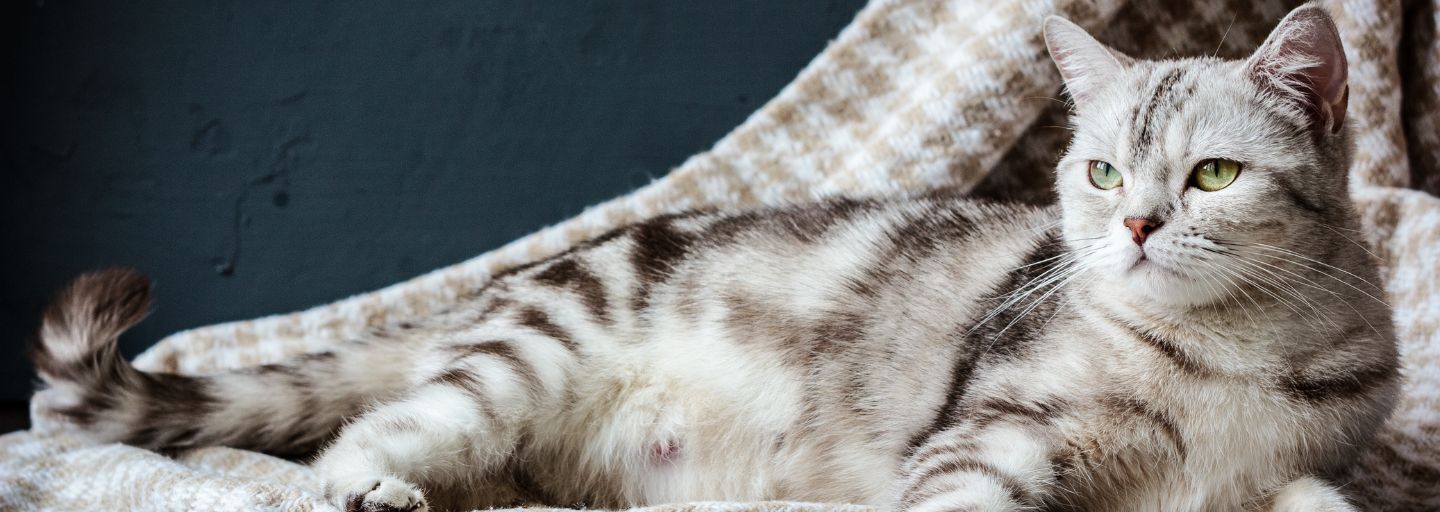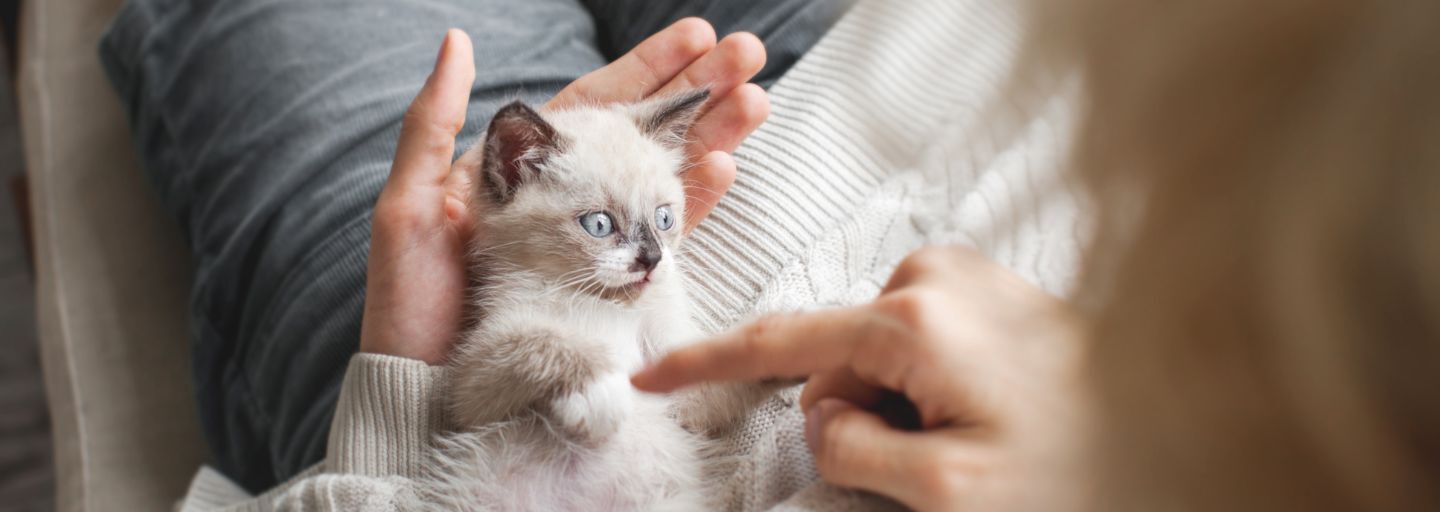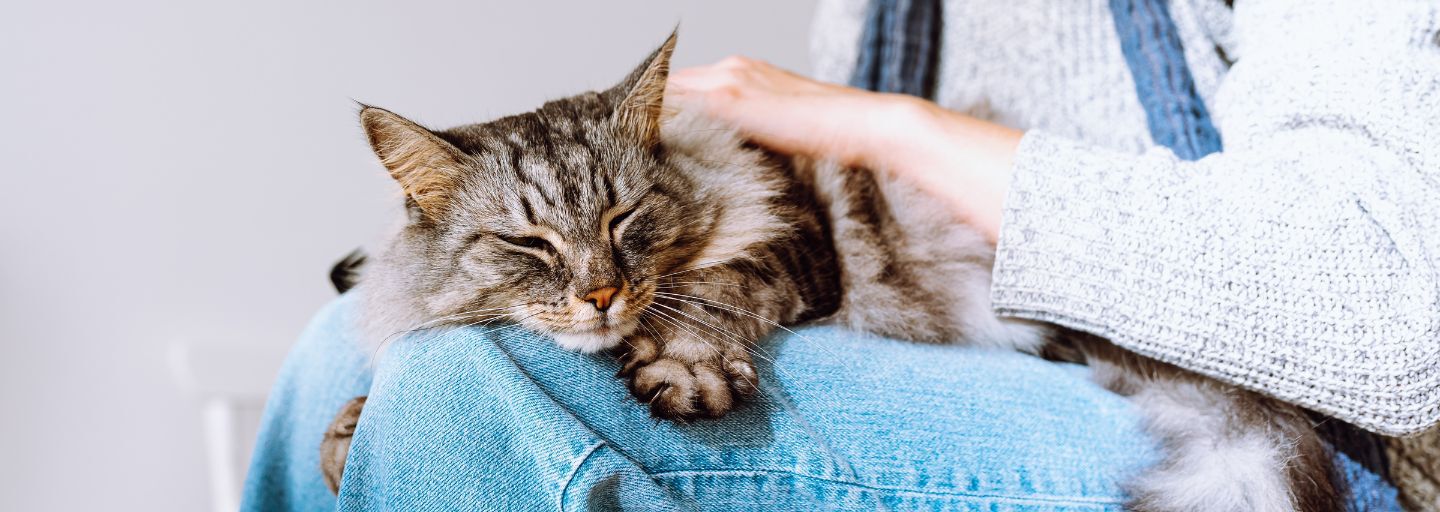As cat owners, it's important to be aware of the signs and symptoms that indicate if our feline companions are pregnant. Whether you're intentionally breeding your cat or suspect she may have mated, understanding how to tell if your cat is pregnant is crucial for providing appropriate care and preparing for the arrival of kittens.
Signs your cat is pregnant
- Changes in Nipple Colour and Size: One of the earliest signs of pregnancy in cats is a change in the colour and size of the nipples. Around three weeks into pregnancy, the nipples may become pinker and slightly enlarged. This change is due to hormonal fluctuations and increased blood flow to the mammary glands in preparation for nursing.
- Increased Appetite: Pregnant cats often experience an increase in appetite, especially during the later stages of pregnancy. You may notice your cat eating more or becoming more demanding when it comes to mealtime. However, it's important to provide a balanced and nutritious diet to support her health and the development of the kittens.
- Weight Gain: As the pregnancy progresses, your cat may start to gain weight. This weight gain is typically gradual and can be observed by gently feeling her abdomen. It's important to note that weight gain alone is not a definitive sign of pregnancy, as it can also be caused by other factors such as overeating or certain health conditions. Consulting with a veterinarian is the best way to confirm pregnancy.
- Changes in Behaviour: Pregnancy can bring about changes in a cat's behaviour. Some cats become more affectionate and seek extra attention from their owners. Others may become more reserved or display nesting behaviours, such as searching for a quiet and comfortable spot to give birth. These behavioural changes can vary from cat to cat, so it's essential to observe any deviations from your cat's normal behaviour.
- Swollen Abdomen: As the pregnancy progresses, your cat's abdomen will gradually enlarge. This swelling is caused by the growing kittens and the expansion of the uterus. However, it's important to note that abdominal swelling can also be a sign of other health issues, such as fluid accumulation or tumours. If you notice a significant or sudden increase in abdominal size, it's crucial to consult with a veterinarian for an accurate diagnosis.
- Changes in Litter Box Habits: Pregnant cats may exhibit changes in their litter box habits. Some cats become more fastidious about cleanliness and may spend more time grooming themselves. Others may have increased frequency or urgency in using the litter box. It's important to ensure that the litter box is easily accessible, clean, and filled with a suitable litter for your pregnant cat's comfort.
It's important to note that false pregnancies can occur in cats, where they display signs of pregnancy without actually being pregnant. If you suspect your cat may be pregnant or experiencing a false pregnancy, it's best to consult with a veterinarian for an accurate diagnosis.
What to Do if Your Cat is Pregnant
If you suspect or confirm that your cat is pregnant, there are several important steps you can take to ensure her health and the well-being of the upcoming kittens:
- Schedule a Veterinary Appointment: While the signs and symptoms mentioned above can provide clues about pregnancy, the most accurate way to determine if your cat is pregnant is through a veterinary examination. A veterinarian can perform an ultrasound to visualise the developing kittens or conduct a physical examination to feel for the presence of foetuses. They can also provide guidance on prenatal care, nutrition, and the expected timeline for the birth of the kittens.
- Provide Proper Nutrition: Pregnant cats have increased nutritional needs to support their own health and the development of the kittens. Consult with your veterinarian to determine the appropriate diet for your pregnant cat. High-quality commercial cat food formulated for pregnant or nursing cats is often recommended, as it provides the necessary nutrients and calories.
- Ensure a Comfortable Environment: Create a quiet and comfortable space for your pregnant cat to rest and prepare for the birth of the kittens. Provide a cozy nesting box lined with soft bedding where she can feel secure. Place the nesting box in a quiet area of your home, away from high-traffic areas and noise.
- Monitor Her Health: Keep a close eye on your pregnant cat's health throughout the pregnancy. Watch for any signs of distress, discomfort, or complications. If you notice any unusual symptoms, such as excessive vomiting, diarrhea, or lethargy, contact your veterinarian immediately.
- Minimise Stress and Physical Strain: Pregnant cats should avoid excessive physical activity or stress. Limit their exposure to loud noises, unfamiliar animals, or any situations that may cause anxiety. Provide a calm and stress-free environment to promote a healthy pregnancy.
- Prepare for the Birth: As the due date approaches, it's important to be prepared for the birth of the kittens. Gather necessary supplies such as clean towels, sterile scissors, and a heating pad. Educate yourself about the signs of labour and the birthing process to be able to provide assistance if needed. However, it's important to remember that most cats are capable of giving birth without human intervention.
- Postnatal Care: After the kittens are born, continue to provide proper care for your cat and her newborns. Ensure that the kittens are nursing and gaining weight. Monitor the mother cat for any signs of complications, such as mastitis or difficulty nursing. If you have any concerns or questions, consult with your veterinarian for guidance.
How Long is a Cat's Pregnancy?
The gestation period, or the length of a cat's pregnancy, can vary slightly among individuals but generally lasts around 63 to 65 days. It's important to note that this is an average timeframe, and some cats may give birth a few days earlier or later. The exact duration of pregnancy can depend on various factors, including the cat's breed, age, health, and the number of kittens she is carrying.
Being able to tell if your cat is pregnant is essential for providing appropriate care and preparing for the arrival of kittens. By observing these signs, seeking veterinary guidance, and providing the necessary care and support, you can ensure the well-being of your pregnant cat and the upcoming litter of kittens.







